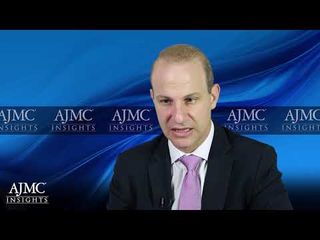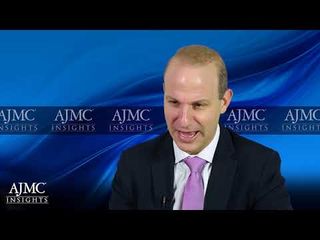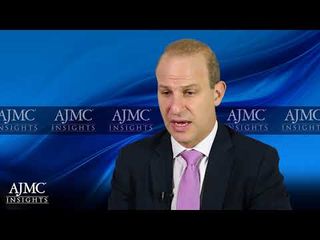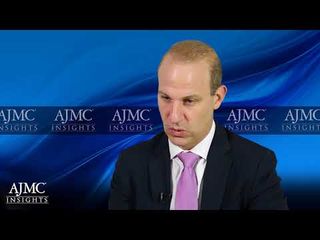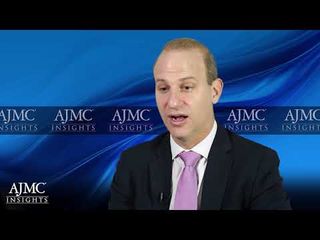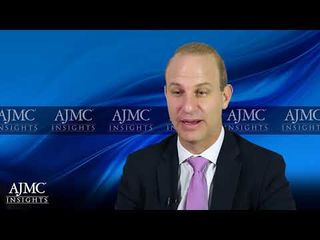
Oncology
Latest News
Latest Videos

CME Content
More News

Less than 2 months after it ordered a stop to 3 trials of pembrolizumab (Keytruda) in multiple myeloma due to safety concerns, the FDA has released a more detailed analysis of what went wrong in these trials.

Results of a combination trial evaluating epacadostat with pembrolizumab in advanced melanoma, to be presented at the upcoming European Society for Medical Oncology (ESMO) 2017 Congress, has found that the treatment is well tolerated and has promising clinical activity.

A new study finds that individuals with advanced cancer have high rates of hospitalization in the year after diagnosis. Palliative care aimed at preventing hospital admissions may be a useful tool, especially for the populations most at risk of rehospitalization.

The FDA has approved the first chimeric antigen receptor-T (CAR-T) treatment, tisagenlecleucel (Kymriah), for the treatment of B-cell precursor acute lymphoblastic leukemia in certain pediatric and young adult patients. The therapy represents a new frontier in cancer care.

AstraZeneca announced that the FDA has expanded the indications for fulvestrant (Faslodex). The drug is now approved as first-line monotherapy for women with certain types of breast cancer.

A study published in JCO Precision Oncology has identified an association between genetic inheritance and patients’ response to efficacy and toxicity in the phase 3 ECOG-ACRIN-5103 trial.

Chimeric antigen receptor (CAR)-T cells can re-expand in a lymphoma patient months after the initial infusion and can also be active against the patient’s cancer, according to a new study.

A new study points to an association between use of high-dose vitamin B6 and B12 supplements and an increased risk of lung cancer in men, especially in those who smoke.

A new study in the Journal of Clinical Oncology identifies an increased role for physicians in boosting human papillomavirus (HPV) vaccination rates among childhood cancer survivors to reduce their risk of a second cancer.

A new study indicates that palliative care can significantly reduce end-of-life hospitalizations and aggressive procedures among Medicare beneficiaries with advanced cancer.

According to a new study published in Cancer, an annual screening mammogram starting at age 40 has the greatest impact on reducing mortality.

High out-of-pocket (OOP) medical costs in survivors of childhood cancer can influence their treatment choices and care-related behavior, and ultimately affect their health outcomes, according to a study published in the Journal of Clinical Oncology.

The FDA has approved Besponsa (inotuzumab ozogamicin) for treating adults with relapsed or refractory B-cell precursor acute lymphoblastic leukemia.

A small phase 1b trial of pembrolizumab in patients with small-cell lung cancer shows that the immunotherapy drug had a favorable safety profile and demonstrated “promising” antitumor activity.

Researchers from the United States, Netherlands, and Denmark have collaborated on developing a new liquid biopsy test that can detect circulating cell-free DNA in patients with early-stage cancer.

A new study, published in the journal Nature, has confirmed the efficacy of a melanoma vaccine targeted against 20 predicted personal tumor neoantigens in 6 patients.

Following completion of their chemotherapy regimen, many women who have survived cancer experience lingering symptoms of chemotherapy-induced peripheral neuropathy, according to a new study.

An analysis by Kaiser Health News found that Medicaid incurred billions of dollars in extra spending as a result of price increases for hundreds of common drugs from 2015 to 2016, including decades-old branded drugs and generics used to treat cancer.

A retrospective study in patients with newly diagnosed cancer has identified an increased risk of cardiovascular (CV) abnormalities that are aggravated by cancer stage.
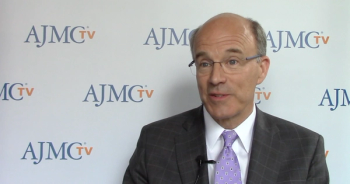
UnitedHealth is currently involved in 2 types of value-based contracts with its provider partners, but it has seen more success with one compared with the other, explained Lee N. Newcomer, MD, MHA, senior vice president of oncology and genetics at UnitedHealthcare.

This meeting presents unique perspectives on emerging topics in managed care from today’s leading experts

A community oncologist's perspective on the advantages and challenges with precision medicine.

A reaction to Institute for Clinical and Economic Review's value assessment framework by Eleanor M. Perfetto, PhD, MS, of The National Health Council.

A new study indicates there are persistent socioeconomic disparities in the rates of women who receive breast reconstruction surgery after undergoing a mastectomy to treat their breast cancer.

Patient reported data can be a reliable source of information to ascertain comorbidities in patients with prostate cancer, says JAMA Oncology study.



